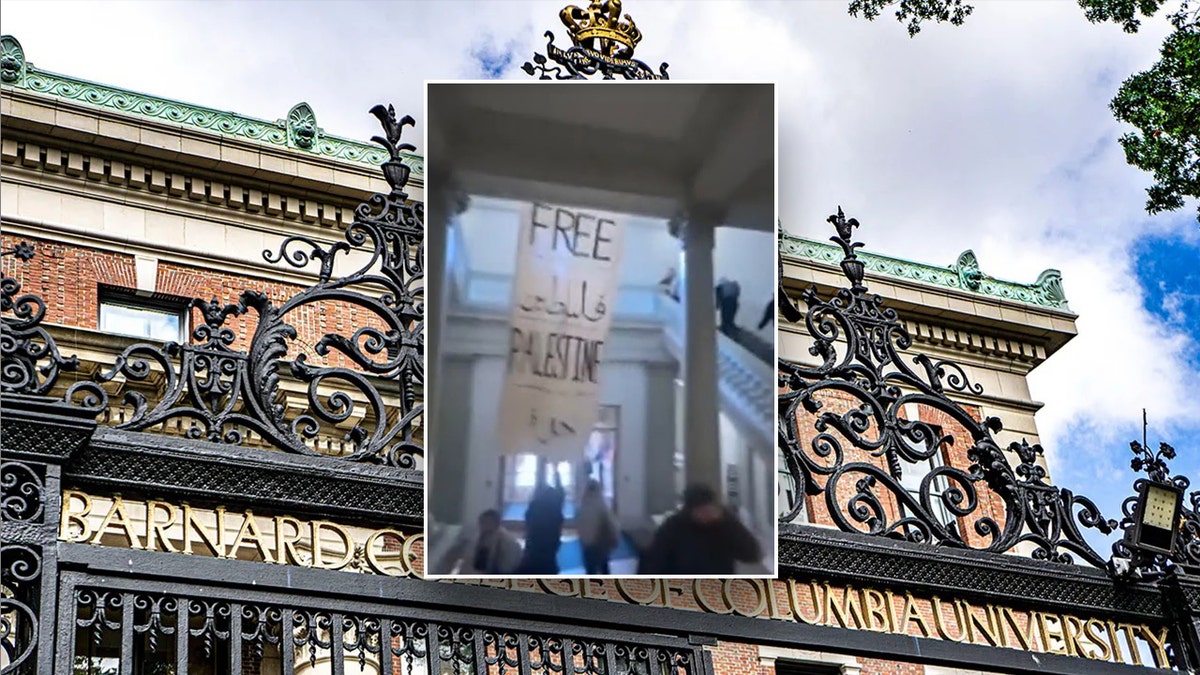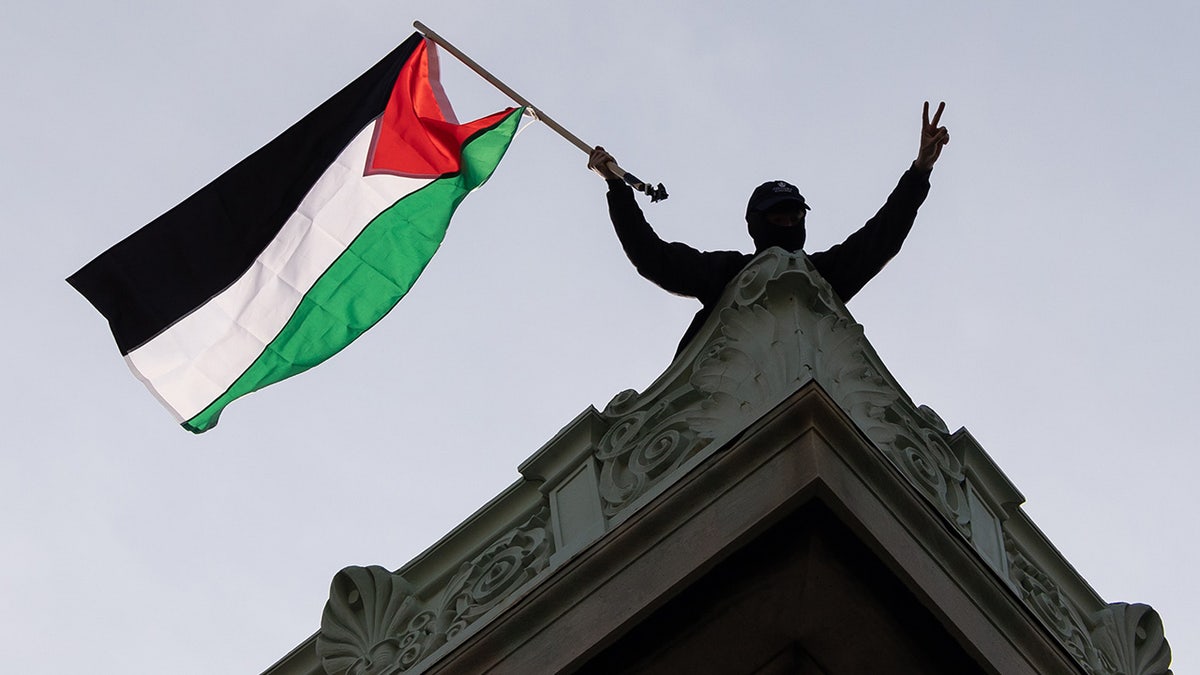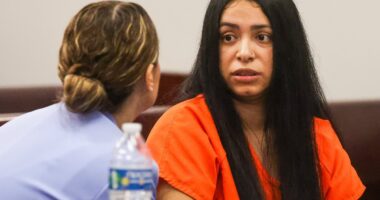At Barnard College last week, protests against Israel erupted, and Columbia associate professor Shai Davidai is speaking out against students and faculty.
Davidai told Fox News Digital, “The recent protests we witnessed, including the violent takeover of a hall at Barnard, are part of the same movement that began on Oct. 12, 2023. Hatred and extremism do not disappear on their own. If left unchecked, they persist.”
The latest demonstrations were sparked by the expulsion of two students who reportedly disrupted a Columbia University class in January by distributing flyers containing offensive and antisemitic content.

Anti-Israel protesters demonstrated at Barnard College in February 2025. (Getty; X)
Davidai says he has tried to engage with other faculty on the issues, but that in one case, a student intervened and pulled the other faculty member out of the conversation. He says there are “radical students” who are telling faculty “what to do and what to say.”
In addition to the faculty, Davidai sees a problem with Columbia’s leadership. He says that former Columbia University President Minouche Shafik “did not know what she was going into” and “was a coward.” He places heavier blame on Interim President Katrina Armstrong, who he says is “incompetent.”
Davidai does not think all hope is lost for Columbia and believes there is a way for the university to turn things around.
“You kick out the indoctrinaters, you kick out the professors [who] openly support Hamas and other U.S.-designated terror organizations. You kick out the students that blatantly support massacres of Jews and Israelis, and you make room for professors who want to teach and for students who want to learn.”

An anti-Israel demonstrator holds a flag on the rooftop of Hamilton Hall at Columbia University in New York on April 30, 2024. (Yuki Iwamura/Bloomberg via Getty Images)
Neither Barnard College nor Columbia University immediately responded to Fox News Digital’s requests for comment.
Barnard College and Columbia University have a storied history. Initially, Columbia was an all-male university and Barnard, an all-female school, became part of the Columbia system in 1900. The two still share academic resources and both institutions have classes that are available to Columbia and Barnard students.
On Feb. 26, Columbia tweeted out a statement saying that “the disruption of academic activities is not acceptable conduct.”
Immediately following the class disruption in January, interim President Armstrong condemned the incident in a statement, saying that the agitators’ actions went against the university’s rules. Additionally, Columbia suspended an alleged participant with ties to the university and launched an investigation.
Barnard President Laura Ann Rosenbury published an op-ed on the situation on Monday in the Chronicle of Higher Education entitled, “When Student Protest Goes Too Far.”
“This disruption was not designed to expand thinking or advance civil discourse. Instead, it was a calculated act of intimidation, with the disruptors taunting and loudly speaking over the professor, distributing antisemitic flyers, and refusing to join the discussion even when the professor graciously invited them to sit in on the class,” Rosenbury writes. She went on to say the protesters actions were “utterly at odds with our mission.”

















